- Home
- William Shakespeare
On Power (Penguin) Page 2
On Power (Penguin) Read online
Page 2
And so I am. Then crushing penury
Persuades me I was better when a king.
Then am I kinged again, and by and by
Think that I am unkinged by Bolingbroke,
And straight am nothing. But whate’er I be,
Nor I, nor any man that but man is,
With nothing shall be pleased till he be eased
With being nothing.
Timon of Athens, Act I, Scene 1
POET:
You see this confluence, this great flood of visitors.
I have in this rough work shaped out a man
Whom this beneath world doth embrace and hug
With amplest entertainment. My free drift
Halts not particularly, but moves itself
In a wide sea of tax. No levelled malice
Infects one comma in the course I hold,
But flies an eagle flight, bold and forth on,
Leaving no tract behind.
PAINTER:
How shall I understand you?
POET:
I will unbolt to you.
You see how all conditions, how all minds,
As well of glib and slipp’ry creatures as
Of grave and austere quality, tender down
Their service to Lord Timon. His large fortune,
Upon his good and gracious nature hanging,
Subdues and properties to his love and tendance
All sorts of hearts. Yea, from the glass-faced flatterer
To Apemantus, that few things loves better
Than to abhor himself; even he drops down
The knee before him, and returns in peace,
Most rich in Timon’s nod.
PAINTER:
I saw them speak together.
POET:
Sir, I have upon a high and pleasant hill
Feigned Fortune to be throned. The base o’th’mount
Is ranked with all deserts, all kind of natures
That labour on the bosom of this sphere
To propagate their states. Amongst them all
Whose eyes are on this sovereign lady fixed
One do I personate of Lord Timon’s frame,
Whom Fortune with her ivory hand wafts to her,
Whose present grace to present slaves and servants
Translates his rivals.
PAINTER:
’Tis conceived to scope.
This throne, this Fortune, and this hill methinks,
With one man beckoned from the rest below,
Bowing his head against the steepy mount
To climb his happiness, would be well expressed
In our condition.
POET:
Nay sir, but hear me on.
All those which were his fellows but of late,
Some better than his value, on the moment
Follow his strides, his lobbies fill with tendance,
Rain sacrificial whisperings in his ear,
Make sacred even his stirrup, and through him
Drink the free air.
PAINTER:
Ay, marry, what of these?
POET:
When Fortune in her shift and change of mood
Spurns down her late beloved, all his dependants,
Which laboured after him to the mountain’s top
Even on their knees and hands, let him fall down,
Not one accompanying his declining foot.
Henry IV, Part I, Act I, Scene 2
SIR JOHN OLDCASTLE: Marry then, sweet wag, when thou art king let not us that are squires of the night’s body be called thieves of the day’s beauty. Let us be ‘Diana’s foresters’, ‘gentlemen of the shade’, ‘minions of the moon’, and let men say we be men of good government, being governed, as the sea is, by our noble and chaste mistress the moon, under whose countenance we steal.
PRINCE HARRY: Thou sayst well, and it holds well too, for the fortune of us that are the moon’s men doth ebb and flow like the sea, being governed as the sea is by the moon. As for proof now: a purse of gold most resolutely snatched on Monday night and most dissolutely spent on Tuesday morning, got with swearing ‘lay by!’ and spent with crying ‘bring in!’, now in as low an ebb as the foot of the ladder and by and by in as high a flow as the ridge of the gallows.
Richard II, Act III, Scene 4
GARDENER (to First Man):
Go, bind thou up young dangling apricots
Which, like unruly children, make their sire
Stoop with oppression of their prodigal weight.
Give some supportance to the bending twigs.
(To Second Man) Go thou, and, like an executioner,
Cut off the heads of too fast-growing sprays
That look too lofty in our commonwealth.
All must be even in our government.
You thus employed, I will go root away
The noisome weeds which without profit suck
The soil’s fertility from wholesome flowers.
FIRST MAN:
Why should we, in the compass of a pale,
Keep law and form and due proportion,
Showing as in a model our firm estate,
When our sea-walled garden, the whole land,
Is full of weeds, her fairest flowers choked up,
Her fruit trees all unpruned, her hedges ruined,
Her knots disordered, and her wholesome herbs
Swarming with caterpillars?
GARDENER:
Hold thy peace.
He that hath suffered this disordered spring
Hath now himself met with the fall of leaf.
The weeds which his broad spreading leaves did shelter,
That seemed in eating him to hold him up,
Are plucked up, root and all, by Bolingbroke –
I mean the Earl of Wiltshire, Bushy, Green.
SECOND MAN:
What, are they dead?
GARDENER:
They are; and Bolingbroke
Hath seized the wasteful King. O, what pity is it
That he had not so trimmed and dressed his land
As we this garden! We at time of year
Do wound the bark, the skin of our fruit trees,
Lest, being over-proud in sap and blood,
With too much riches it confound itself.
Had he done so to great and growing men,
They might have lived to bear, and he to taste,
Their fruits of duty. Superfluous branches
We lop away, that bearing boughs may live.
Had he done so, himself had borne the crown,
Which waste of idle hours hath quite thrown down.
King Lear, Act III, Scene 1
GONERIL:
Hear me, my lord.
What need you five-and-twenty, ten, or five,
To follow in a house where twice so many
Have a command to tend you?
REGAN:
What need one?
LEAR:
O, reason not the need! Our basest beggars
Are in the poorest thing superfluous.
Allow not nature more than nature needs.
Man’s life is cheap as beast’s. Thou art a lady.
If only to go warm were gorgeous,
Why, nature needs not what thou, gorgeous, wear’st,
Which scarcely keeps thee warm. But for true need,
You heavens, give me that patience, patience I need.
You see me here, you gods, a poor old man,
As full of grief as age, wretched in both.
If it be you that stirs these daughters’ hearts
Against their father, fool me not so much
To bear it tamely. Touch me with noble anger
And let not women’s weapons, water-drops,
Stain my man’s cheeks. No, you unnatural hags,
I will have such revenges on you both
That all the world shall – I will do such things –
What they are, y
et I know not; but they shall be
The terrors of the earth. You think I’ll weep.
No I’ll not weep. I have full cause of weeping,
Storm and tempest.
But this heart shall break into a hundred thousand flaws
Or ere I’ll weep. O Fool, I shall go mad!
Sonnet 94
They that have power to hurt and will do none,
That do not do the thing they most do show,
Who moving others are themselves as stone,
Unmoved, cold, and to temptation slow;
They rightly do inherit heaven’s graces
And husband nature’s riches from expense;
They are the lords and owners of their faces,
Others but stewards of their excellence.
The summer’s flower is to the summer sweet,
Though to itself it only live and die,
But if that flower with base infection meet
The basest weed outbraves his dignity.
For sweetest things turn sourest by their deeds:
Lilies that fester smell far worse than weeds.
Julius Caesar, Act I, Scene 2
CASSIUS:
Why, man, he doth bestride the narrow world
Like a Colossus, and we petty men
Walk under his huge legs and peep about
To find ourselves dishonourable graves.
Men at sometime were masters of their fates.
The fault, dear Brutus, is not in our stars
But in ourselves, that we are underlings.
Brutus and Caesar: what should be in that ‘Caesar’?
Why should that name be sounded more than yours?
Write them together: yours is as fair a name.
Sound them: it doth become the mouth as well.
Weigh them: it is as heavy. Conjure with ’em:
‘Brutus’ will start a spirit as soon as ‘Caesar’.
Now in the names of all the gods at once,
Upon what meat doth this our Caesar feed
That he is grown so great? Age, thou art shamed.
Rome, thou hast lost the breed of noble bloods.
When went there by an age since the great flood,
But it was famed with more than with one man?
When could they say till now, that talked of Rome,
That her wide walls encompassed but one man?
Now is it Rome indeed, and room enough
When there is in it but one only man.
O you and I have heard our fathers say
There was a Brutus once that would have brooked
Th’eternal devil to keep his state in Rome
As easily as a king.
Coriolanus, Act II, Scene 3
BRUTUS (to the citizens):
Could you not have told him
As you were lessoned? When he had no power
But was a petty servant to the state
He was your enemy, ever spake against
Your liberties and the charters that you bear
I’th’body of the weal; and now arriving
A place of potency and sway o’th’ state,
If he should still malignantly remain
Fast foe to th’ plebeii, your voices might
Be curses to yourselves. You should have said
That as his worthy deeds did claim no less
Than what he stood for, so his gracious nature
Would think upon you for your voices and
Translate his malice towards you into love,
Standing your friendly lord.
SICINIUS (to the citizens):
Thus to have said
As you were foreadvised had touched his spirit
And tried his inclination, from him plucked
Either is gracious promise, which you might,
As cause had called you up, have held him to,
Or else it would have galled his surly nature,
Which easily endures not article
Tying him to aught. So putting him to rage,
You should have ta’en th’advantage of his choler
And passed him unelected.
BRUTUS (to the citizens):
Did you perceive
He did solicit you in free contempt
When he did need your loves, and do you think
That his contempt shall not be bruising to you
When he hath power to crush? Why, had your bodies
No heart among you? Or had you tongues to cry
Against the rectorship of judgement?
SICINIUS (to the citizens):
Have you
Ere now denied the asker, and now again,
Of him that did not ask but mock, bestow
Your sued-for tongues?
THIRD CITIZEN:
He’s not confirmed, we may deny him yet.
SECOND CITIZEN:
And will deny him.
I’ll have five hundred voices of that sound.
FIRST CITIZEN:
I twice five hundred, and their friends to piece ’em.
BRUTUS:
Get you hence instantly, and tell those friends
They have chose a consul that will from them take
Their liberties, make them of no more voice
Than dogs that are as often beat for barking
As therefor kept to do so.
Othello, Act I, Scene 1
IAGO:
I follow him to serve my turn upon him.
We cannot all be masters, nor all masters
Cannot be truly followed. You shall mark
Many a duteous and knee-crooking knave
That, doting on his own obsequious bondage,
Wears out his time much like his master’s ass,
For naught but provender, and when he’s old, cashiered.
Whip me such honest knaves. Others there are
Who, trimmed in forms and visages of duty,
Keep yet their hearts attending on themselves,
And throwing but shows of service on their lords
Do well thrive by ’em, and when they have lined their coats
Do themselves homage. These fellows have some soul,
And such a one do I profess myself; for, sir,
It is as sure that you are Roderigo,
Were I the Moor I would not be Iago.
In following him I follow but myself.
Heaven is my judge, not I for love and duty,
But seeming so for my peculiar end.
For when my outward action doth demonstrate
The native act and figure of my heart
In compliment extern, ’tis not long after
But I will wear my heart upon my sleeve
For daws to peck at. I am not what I am.
Richard III, Act III, Scene 7
BUCKINGHAM:
Know then, it is your fault that you resign
The supreme seat, the throne majestical,
The sceptred office of your ancestors,
Your state of fortune and your due of birth,
The lineal glory of your royal house,
To the corruption of a blemished stock,
Whiles in the mildness of your sleepy thoughts –
Which here we waken to our country’s good –
The noble isle doth want her proper limbs.
Her face defaced with scars of infamy,
Her royal stock graft with ignoble plants
And almost shouldered in the swallowing gulf
Of dark forgetfulness and deep oblivion,
Which to recure we heartily solicit
Your gracious self to take on you the charge
And kingly government of this your land,
Not as Protector, steward, substitute,
Or lowly factor for another’s gain,
But as successively, from blood to blood,
Your right of birth, your empery, your own.
For this, consorted with the citizens,
Y
our very worshipful and loving friends,
And by their vehement instigation,
In this just cause come I to move your grace.
RICHARD GLOUCESTER:
I cannot tell if to depart in silence
Or bitterly to speak in your reproof
Best fitteth my degree or your condition.
Your love deserves my thanks, but my desert,
Unmeritable, shuns your high request.
First, if all obstacles were cut away
And that my path were even to the crown,
As the ripe revenue and due of birth,
Yet so much is my poverty of spirit,
So mighty and so many my defects,
That I would rather hide me from my greatness –
Being a barque to brook no mighty sea –
Than in my greatness covet to be hid,
And in the vapour of my glory smothered.
But, God be thanked, there is no need of me,
And much I need to help you, were there need.
The royal tree hath left us royal fruit,
Which, mellowed by the stealing hours of time,
Will well become the seat of majesty
And make, no doubt, us happy by his reign.
On him I lay that you would lay on me,
The right and fortune of his happy stars,
Which God defend that I should wring from him.
BUCKINGHAM:
My lord, this argues conscience in your grace,
But the respects thereof are nice and trivial,
All circumstances well considered.
You say that Edward is your brother’s son,
So say we too, but not by Edward’s wife,
For first was he contract to Lady Lucy,
Your mother lives a witness to his vow,
And afterward, by substitute, betrothed
To Bona, sister to the King of France.
These both put off, a poor petitioner,
A care-crazed mother to a many sons,
A beauty-waning and distressed widow
Even in the afternoon of her best days,
Made prize and purchase of his wanton eye,
Seduced the pitch and height of his degree
To base declension and loathed bigamy.
By her in his unlawful bed he got
This Edward, whom our manners call the Prince.

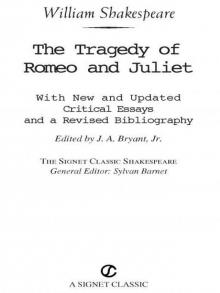 Romeo and Juliet
Romeo and Juliet As You Like It (Folger Shakespeare Library)
As You Like It (Folger Shakespeare Library)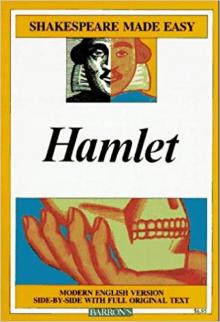 Hamlet
Hamlet Richard II (Folger Shakespeare Library)
Richard II (Folger Shakespeare Library) Macbeth
Macbeth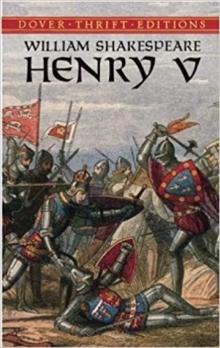 Henry V
Henry V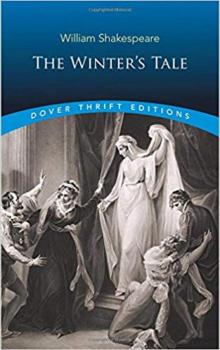 The Winter's Tale
The Winter's Tale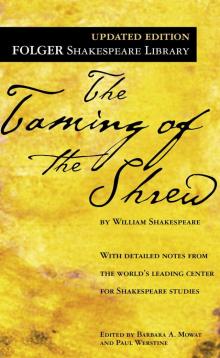 The Taming of the Shrew
The Taming of the Shrew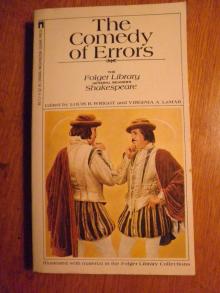 The Comedy of Errors
The Comedy of Errors King Lear (Folger Shakespeare Library)
King Lear (Folger Shakespeare Library)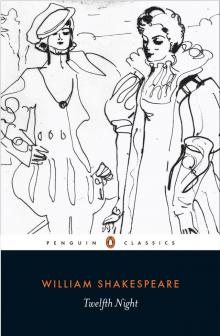 Twelfth Night
Twelfth Night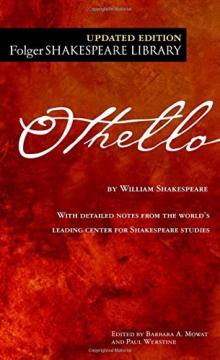 Othello
Othello The Two Gentlemen of Verona
The Two Gentlemen of Verona Henry IV, Part 1 (Folger Shakespeare Library)
Henry IV, Part 1 (Folger Shakespeare Library)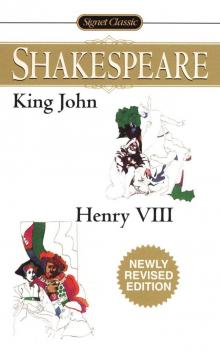 King John/Henry VIII (Signet Classics)
King John/Henry VIII (Signet Classics)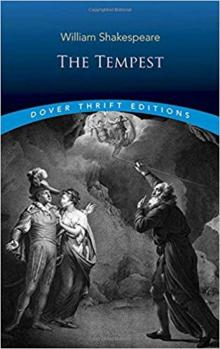 The Tempest
The Tempest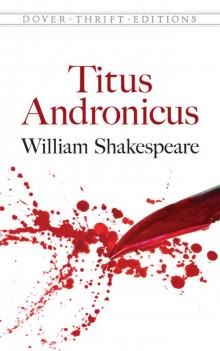 Titus Andronicus (Dover Publications)
Titus Andronicus (Dover Publications)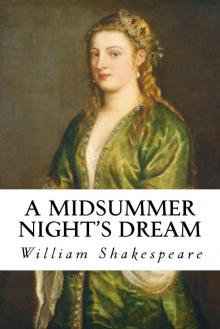 A Midsummer Night's Dream
A Midsummer Night's Dream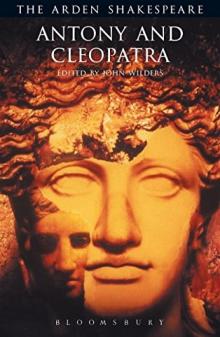 Antony and Cleopatra (Arden Shakespeare: Third Series)
Antony and Cleopatra (Arden Shakespeare: Third Series)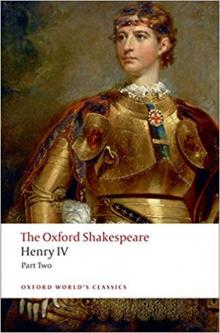 The Oxford Shakespeare: Henry IV, Part 2 (Oxford World's Classics)
The Oxford Shakespeare: Henry IV, Part 2 (Oxford World's Classics)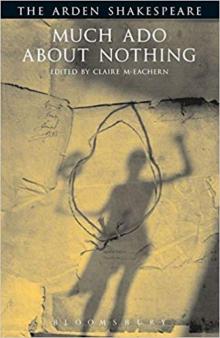 Much Ado About Nothing (Arden Shakespeare: Third Series)
Much Ado About Nothing (Arden Shakespeare: Third Series) All's Well That Ends Well
All's Well That Ends Well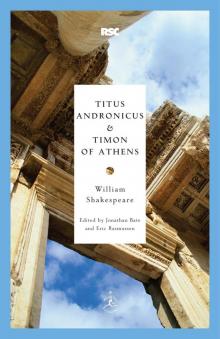 Titus Andronicus & Timon of Athens
Titus Andronicus & Timon of Athens Richard III (Modern Library Classics)
Richard III (Modern Library Classics) Coriolanus
Coriolanus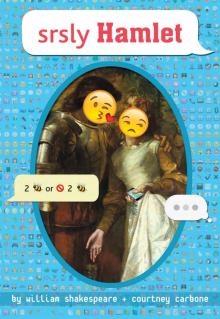 srsly Hamlet (OMG Shakespeare)
srsly Hamlet (OMG Shakespeare)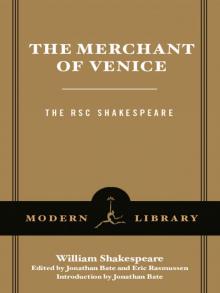 The Merchant of Venice
The Merchant of Venice Richard III
Richard III Richard II
Richard II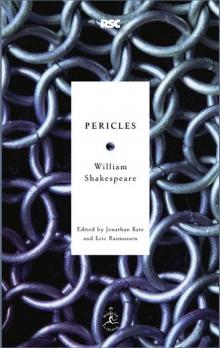 Pericles
Pericles As You Like It
As You Like It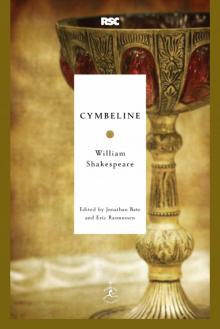 Cymbeline
Cymbeline Alls Wel that ends Well
Alls Wel that ends Well YOLO Juliet
YOLO Juliet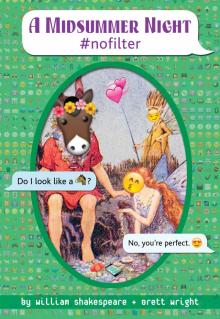 A Midsummer Night #nofilter
A Midsummer Night #nofilter Love's Labour's Lost
Love's Labour's Lost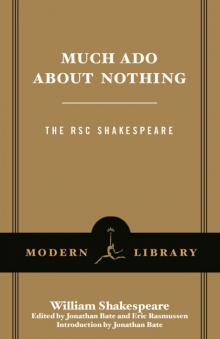 Much Ado About Nothing
Much Ado About Nothing Romeo & Juliet & Vampires
Romeo & Juliet & Vampires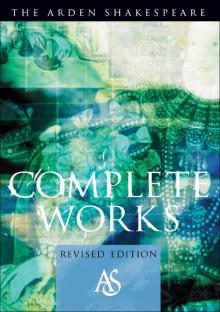 The Arden Shakespeare Complete Works
The Arden Shakespeare Complete Works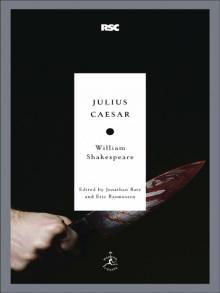 Julius Caesar
Julius Caesar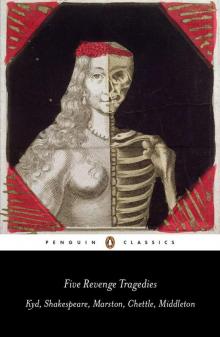 Five Revenge Tragedies: The Spanish Tragedy, Hamlet, Antonio's Revenge, The Tragedy of Hoffman, The Revenger's Tragedy (Penguin Classics)
Five Revenge Tragedies: The Spanish Tragedy, Hamlet, Antonio's Revenge, The Tragedy of Hoffman, The Revenger's Tragedy (Penguin Classics) Macbeth #killingit
Macbeth #killingit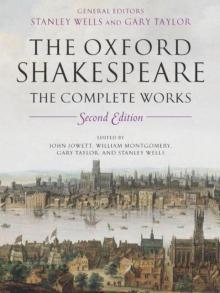 The Oxford Shakespeare: The Complete Works
The Oxford Shakespeare: The Complete Works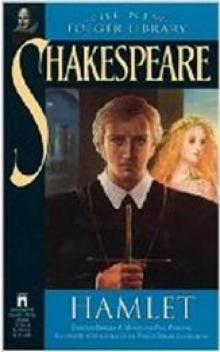 Hamlet, Prince of Denmark (Collins edition)
Hamlet, Prince of Denmark (Collins edition) King John & Henry VIII
King John & Henry VIII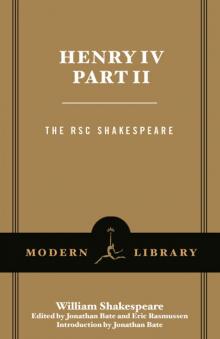 Henry IV, Part 2
Henry IV, Part 2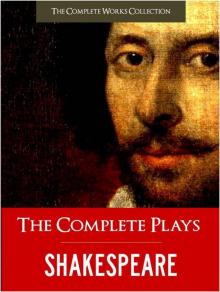 Complete Plays, The
Complete Plays, The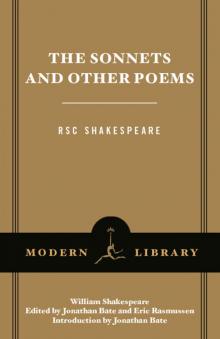 The Sonnets and Other Poems
The Sonnets and Other Poems Antony and Cleopatra
Antony and Cleopatra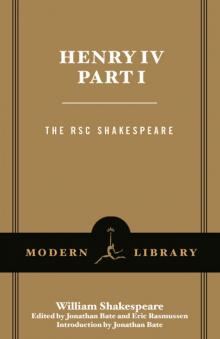 Henry IV, Part 1
Henry IV, Part 1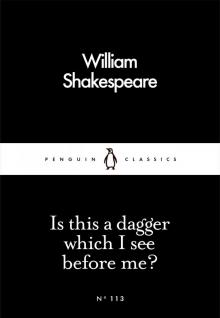 Is This a Dagger Which I See Before Me?
Is This a Dagger Which I See Before Me? The Complete Works of William Shakespeare In Plain and Simple English (Translated)
The Complete Works of William Shakespeare In Plain and Simple English (Translated) The Sonnets
The Sonnets